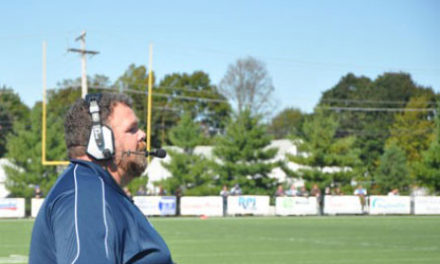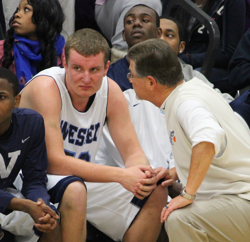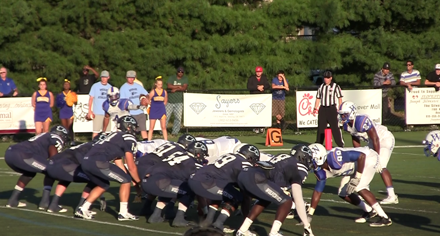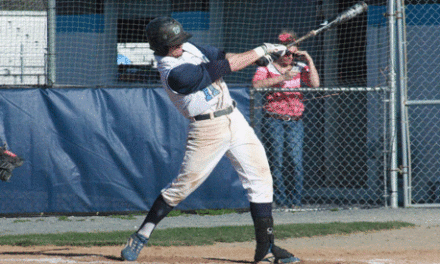Being a college athlete can be an overwhelming job for some.
Former football player Marcus Johnson didn’t have time for friends while playing cornerback for Wesley.
“My classes were back to back so I had no time for anything,” he said. “Then lunch, then three-hour practices and then, right after that, I went straight to homework, so I couldn’t really do some of the things a regular student would do.”
Brett Ford, Wesley College’s Sport Information Director, said students have to show some sort of academic progress in obtaining their degree to keep them eligible to play.
Wesley has different programs and tutoring to help increase student-athlete retention.
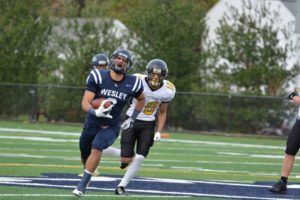
Samer Manna
Time management plays a big part in any student athlete’s life, said sophomore Samer Manna, who said he does a good job juggling his football and school schedule.
“Time management plays a big role for student athletes, balancing a social life, school and athletics can be a full time job,†Manna said. “If not handled well, it could result in a downfall in academics.â€
Head football coach and athletic director Mike Drass
said that getting a degree while playing a sport can be done.
“It’s easy to balance football,†Drass said. “When students have a difficult time, it’s because of time management. They’re here to earn a degree, then everything else will fall into place.â€
Senior football player Jamar Baynard makes sure he completes his work prior to attending practices.
“I try to get my homework and studying done before practices and take extra time if needed to make sure that I have completed all my work,†he said.
According to the National Collegiate Athletic Association (NCAA), Division 1 and Division 3 athletes have different academic requirements and standards they must meet every semester.
Division 1 athletes must take a total of six credit hours and maintain a grade point average based upon the school’s standards per year in order to play.
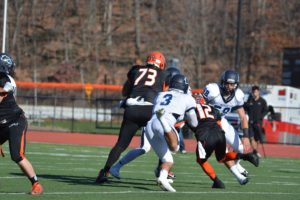
Wesley College Football
D3 athletes must complete 12 credit hours and must posses a minimum GPA of 1.9 at the end of each semester to be eligible for the school and NCAA academic- athletic term year.
The academic regulations also depend on the specific school’s policy.
“The biggest benefit of playing at the Division 1 level is being able to have school paid for us,†said Abdur-Rahman. “Playing great competition and gaining the opportunity of being looked at by professional scouts is also an attraction.â€
Since Division 3 players don’t get paid, it is their desire to play that keeps them on the field. When Division 1 players are recruited, they usually get some or all of their education paid for.
“We are not a scholarship school,†Drass said. “Whatever is stated in the school’s handbook, if they meet those requirements then they are eligible to play.â€
Although being a college athlete can be demanding, many student-athletes said they never would give it up because of the experience they get from being on a team and playing the game they love.

